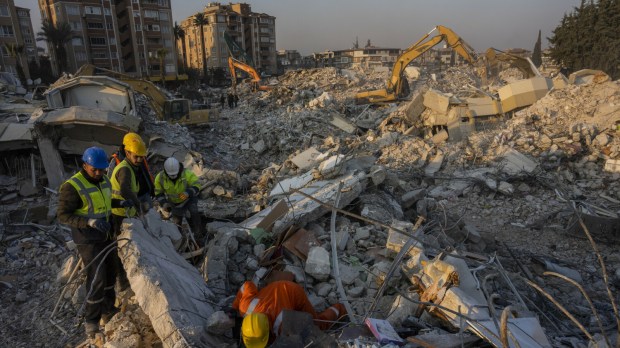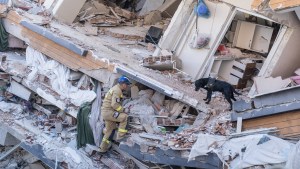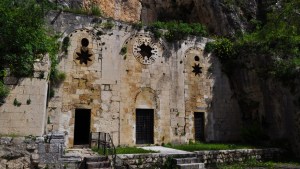Ancient Antioch is a privileged religious pilgrimage destination. Or, at least, it was. One of the earliest cradles of Christianity, and a prominent capital of the Roman Empire, modern-day Antakya is “one of the cities left most devastated by the recent earthquakes that killed tens of thousands in Turkey and Syria,” according to NPR.
Anelise Borges’ article for EuroNews makes it clear this was “a cataclysm of unprecedented proportions, and the worst in 100 years.” And even if in its more than 2,000-year history (Antakya was founded in the year 300 BC) the city has “seen its fair share of disasters, being destroyed and rebuilt many times during the past centuries,” this 7.8 earthquake “caught everyone off guard,” Borges explains.
In fact, several days into the tragedy, help was still slow to arrive.
Whereas some blame the government for what has been deemed an unexplainably slow reaction, others say that the diggers and trucks had to come from other provinces, thus somehow explaining the delay. Erdogan himself, in a public address, claimed that “nothing could have been done to prepare the country for such a tragedy.”
But not everyone in Antakya agrees. Even if rescuers and volunteers (somewhat miraculously) keep finding survivors, the main cemetery is already collapsed. As it ran out of space to bury the dead, authorities opened a mass grave site on the outskirts of the city. DNA samples are being collected so that families can later find their dead relatives and give them a proper burial.
“Without electricity, water, or sanitation, those who survived the earthquake are at great risk. Infectious diseases such as scabies and cholera are spreading fast and aftershocks occur every day,” Borges goes on. “In the first few hours following the earthquake, the only hands available to sift through the rubble were those of survivors who were in shock, wounded, and had never done anything like this before.”
Peter, Bishop of Antioch.
Built around 300 BC in southern Turkey, the city was once called the Rome of the East. In fact, tradition holds that Peter himself was bishop of Antioch years before becoming the first bishop of Rome – he would’ve stayed there for seven years.
Chapter 11 of the Acts of the Apostles says that Antioch was the city in which, for the first time, the disciples of Jesus were called “Christians.”
Tradition has enthroned Peter as the founder of the Church of Antioch, following the narration of the Book of Acts, which tells not only of the arrival of Peter and Barnabas to the Turkish city, but also of their preaching.



